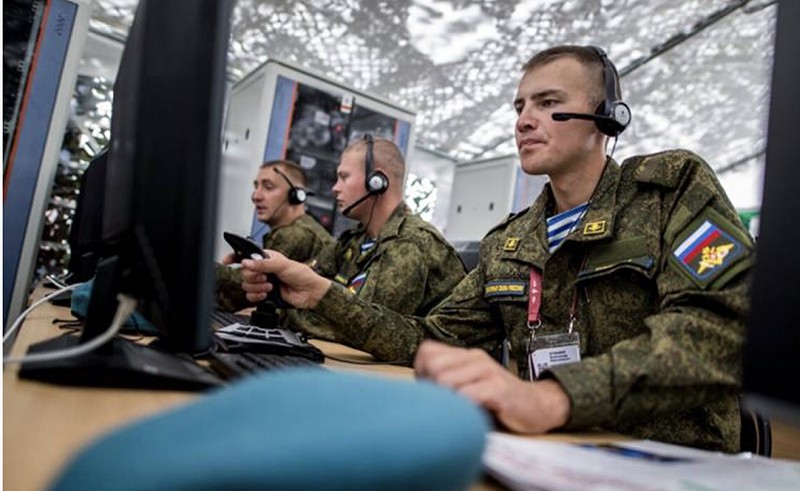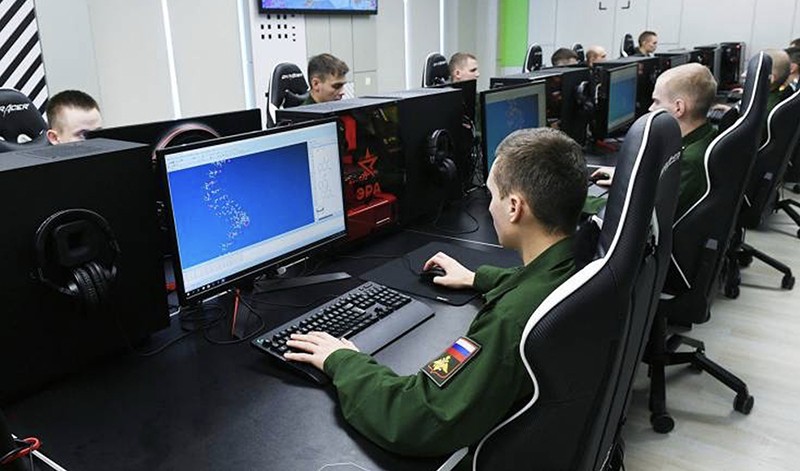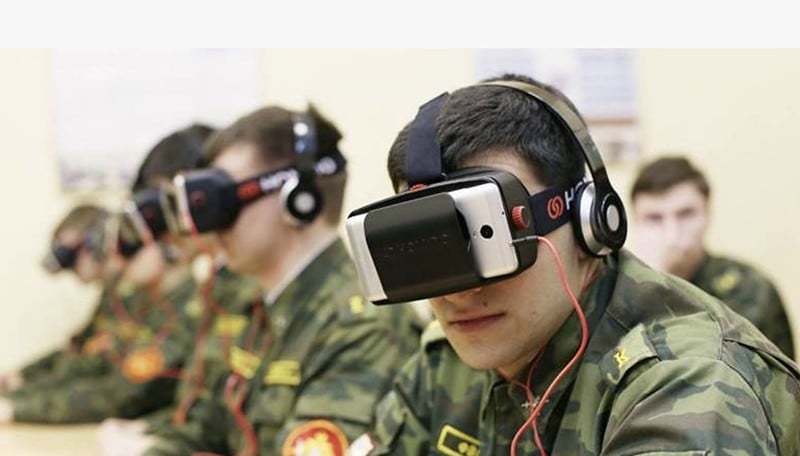 |
Russia's Minister of Digital Development, Maksud Shadayev, recently stated that it would be a good idea to organize IT troops as an alternative to conscription . This is a bold and controversial statement from such a high-ranking official. Shadayev's view is understandable because ever since the Russia-Ukraine conflict broke out, Russian programmers have been migrating en masse to other countries for work – a move that has been entirely detrimental to the country's Ministry of Digital Development.
At least 100,000 programmers left Russia in 2022, and the exodus continued into 2023. They continue to work for Russian companies, but remotely. To mitigate this situation, the Russian government issued a deferment of military service for IT professionals under 30. However, to qualify for this deferment, programmers must work for accredited companies, not as freelancers.
The head of the Ministry of Digital Development intends to further simplify the work of IT professionals by proposing the establishment of a cyber force for the military. The military plans to recruit IT professionals on a contract basis.
On the one hand, the idea is logical and timely. The Americans have their own cyber command, USCYBERCOM, so why shouldn't Russia build a similar structure?
Many countries have similar structures, such as South Korea, North Korea, the UK, and China. A closer look reveals that each major power has at least one military cybersecurity unit.
It seems that Russia is lagging not only behind the US but also the world, as the issue of cyber warfare is only now being raised. This is not entirely true; in one form or another, the Russian military has had units involved in information warfare for the past ten years, for example, the Center for Special Projects of the Ministry of Defense . According to publicly available information, Cyber Defense Centers have been established in each military district and have been operating regularly since 2020.
The goal of these centers is to protect critical military infrastructure from cyberattacks. In modern conditions, this clearly needs to be supplemented with the function of destroying potential enemy targets and conducting comprehensive information warfare.
But why is the question now suddenly being raised about building a special force related to cybersecurity? One possible explanation is the large-scale integration of artificial intelligence into the Russian Army's combat systems. In early October of this year, at the Era Center for Military Technology Innovation, under the chairmanship of Deputy Prime Minister and Minister of Industry and Trade Denis Manturov, issues concerning the robotization of military equipment were discussed. In addition, the field of artificial intelligence in the weapons program for the period 2025–2034 was also raised.
The "ERA" military technology innovation center, located in the resort city of Anapa on the Black Sea coast, was built in 2018 to minimize research time and implement advanced ideas and breakthrough technologies for the benefit of the Russian military. It houses 15 laboratories, 16 research areas, and 320 young scientists. This military science complex covers an area of approximately 17 hectares.
 |
Seeking perfection
The Russian Minister of Digital Development is not the first civilian official to point out the need for a cyber army in Russia. Last year, Vasily Shpak, Deputy Minister of Industry and Trade of Russia, spoke about this. He approached the issue on a more macro level, suggesting the recruitment of conscripts into a cyber force, similar to the science companies in the aforementioned Era Center.
Ideally, in the second year of the Ukraine conflict, this multi-billion dollar scientific center (Era) should have dominated with innovative solutions, but in reality, the "Army 2023" exhibition lacked any truly outstanding achievements. Era's modest portfolio consisted only of the classic Sarych reconnaissance drone, a training system for engaging UAVs with small arms, and the "Tissue Pistol" handheld self-propelled system for medical services. This was perhaps due to a lack of mention of projects being applied on the battlefield.
Is the cyber army that Russian ministries are referring to also in such a situation? First, it is necessary to clarify what the trendy term, cyber army or information technology army, actually means. It seems there is still no clear or widely disseminated definition.
Could a drone operator or a programmer hacking an enemy server be considered a cyber warrior? If we consider cyber warfare to be central, then remote cyberattacks, computer virus creation, software and hardware development, disinformation, and much more would be among the important weapons—information and technology weapons.
Cyber forces must become the system integration unit for a wide range of military structures such as computing, space, and reconnaissance technology, from tactical to strategic levels. It would be beneficial to train programmers and other network specialists in managing the behavior of social groups and conducting large-scale psychological operations behind enemy lines.
In general, the scope of work for cyber warriors is very broad. The Russian military has long had separate structures that can effectively handle everything described above. This is not only within the military, but also within the Russian Security Service, the Russian intelligence agency, the Ministry of Internal Affairs, and the Russian Guard.
Among those lobbying for cyber forces, some argue that establishing a single command center for all security forces would allow them to focus on their core missions, much like the establishment of the U.S. Cyber Command (USCYBERCOM), which for a time was under the leadership of the National Security Agency (NSA). However, this isn't entirely accurate. The U.S. intelligence community has too many offices dedicated to information warfare and cyber weapons. For example, the Department of Homeland Security is directly involved in cybersecurity. The Defense Intelligence Agency is also. USCYBERCOM is merely a competing structure built on the principle of “divide and conquer.” Unlimited budgets allow the Americans to do so.
 |
What will Russia's cyber army look like?
The rationale for establishing a national cyber army is the need for an alternative structure that can be separated from the IT structure of Russia's military ministries, in order to improve quality and competitiveness.
However, there are doubts about the nature of this new army. Perhaps it was a mistake to grant programmers who write code to hack enemy servers the benefits and privileges of Russian military personnel. Keyboard warriors cannot be compared to fighter pilots, tank drivers, and reconnaissance officers. When it comes to work that risks one's life and health, programmers are the last to be considered. Nevertheless, it would be unfair to underestimate the contributions of Russian hackers on the information front, both domestically and internationally, in the current conflict in Ukraine.
An ideal cyber army is a complex structure where the majority of tasks are performed by outsourced civilian specialists. There are many domestic agencies willing to outsource to the Department of Defense and other intelligence agencies. Regardless, the most effective management is in offices accustomed to market mechanisms and with highly specialized personnel. Building a cyber army from scratch would take years (if not a decade). It would be ridiculous to suggest putting conscripts into such a model. What could conscripts learn after a year of service as “combat programmers”?
There's a paradox here. On the one hand, Russia needs a cyber army, and the more soldiers the better. On the other hand, military structures would cease to be armies if tasked purely with cybersecurity.
Source




![[Photo] Prime Minister Pham Minh Chinh presides over the meeting of the Steering Committee for the Development of Science, Technology, Innovation, Digital Transformation and Project 06.](https://vphoto.vietnam.vn/thumb/1200x675/vietnam/resource/IMAGE/2026/02/25/1772024613089_1772024091685-jpg.webp)
![[Photo] Prime Minister Pham Minh Chinh receives the Director General of TASS News Agency (Russian Federation)](https://vphoto.vietnam.vn/thumb/1200x675/vietnam/resource/IMAGE/2026/02/25/1772024599891_dsc-8041-jpg.webp)
















































































![[Infographic] Eight task groups in the Action Program to implement Resolution 80-NQ/TW on the development of Vietnamese culture](https://vphoto.vietnam.vn/thumb/402x226/vietnam/resource/IMAGE/2026/02/26/1772064804794_chuong-trinh-17720096665761428525089-0-105-1400-2345-crop-17720097331061282725800.jpeg)



























Comment (0)